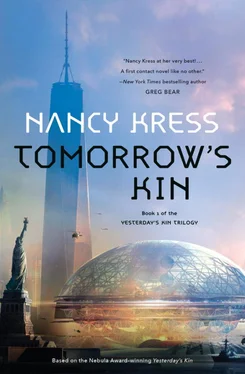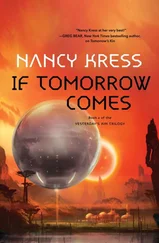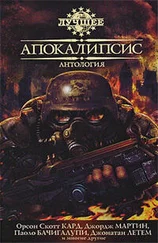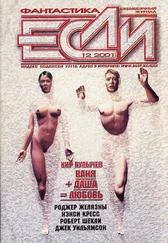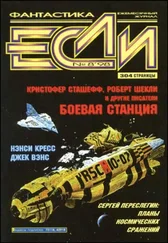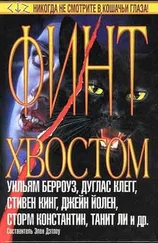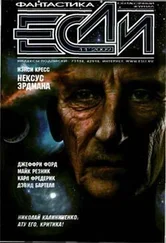“Well, let’s bring it anyway.”
Luke said, “We haven’t got a box.”
“That’s okay,” Ava said. “We got clothes.” She pulled off her parka. It was pink, but the mommy mouse was a girl so that was okay.
“Don’t touch the mice!” Jason said. “Pick them up with clothes!”
Carefully, Ava scooped up the dead mouse with her parka.
Colin said, “We got to get the babies.” He started digging dirt away from the hole.
The babies were deeper than Colin thought, but they got them out. There were six, but two were already dead. Jason put the live ones in his parka and Colin put the dead two into his pockets, lifting them with brown leaves. Luke took off his parka and made Ava wear it. The baby mice kept on crying for their mother.
Colin really, really hoped that Grandma would know what to do.
* * *
It took Marianne almost a week to find Stubbins. First he was “off-site” at one of his companies. Then she’d “just missed him” at the mess. There was a warm cup of coffee in his office but no Stubbins. Finally she ran him to ground on the bridge of the Venture, where she was not supposed to be but Judy told the duty guard it was urgent that they see Mr. Stubbins stat. The guard knew that Judy was a scientist, and she’d put on her most intimidating look. They went aboard.
So this was the twin of the ship that had taken Noah away to the stars. Marianne was surprised all over again at how small it was. She’d always imagined the Deneb mother ship to be even larger than an aircraft carrier, but the Venture wouldn’t have filled a football field. A quarter of the interior was taken up by the shuttle bay, another quarter by storage. The drive machinery was encased in some sort of field that involved both quantum entanglement and dark energy. There may or may not have been an unknown version of wormholes connected to the star drive. That anybody would ride in this ship was an act of insane courage.
The rest of the Venture was divided into a small bridge at the bow and, behind it, a large living area. This contained partly unfinished seats, sleeping cubicles, kitchen, bathrooms, communications systems, none of which were specified in the plans. The basic machinery was Deneb but the fittings would be Terran. Marianne picked her way among crates, tools, and workmen listening to loud rock as they riveted.
Over the din Judy yelled, “You asked once if I’d go? In a New York minute. But my frustrations aren’t the point today, are they? Good luck, Marianne.” She left, running her hand lovingly along a gleaming curved bulkhead. All the beauty and grace the campsite lacked was embodied here, at least potentially, in the alien ship that humans were trying to make their own.
The door to the bridge stood open. Beyond it, Stubbins loomed large, listening intently to two engineers. If he was surprised to see Marianne, he didn’t show it.
She listened to the rest of the engineers’ report, unable to follow most of it. When they left, Stubbins followed. Marianne said, “A word, please, Jonah.”
“Not now. I gotta—”
“It’s about Carl Tyson and his son Paul.”
Stubbins stopped, looked at her.
Marianne said, “You might want to close the door.”
He did. Marianne told him what Tim had said about Paul and the gunman in Manhattan, making the connections sound more definite than Tim had actually found. She finished with, “I don’t expect you to admit any of this. What I want to know, right now, is why you so badly wanted me here at the Venture site. Why you paid for apartments, bodyguard, the kids’ school, Ryan’s treatment, all of it. Why you brought me here.”
He said, “Your insider’s view as a force shaping public opinion about—”
“Bullshit. Two dozen people could have written those articles, and if we changed even one person’s mind in this polarized political atmosphere, I’ve yet to hear about it. It was Colin you wanted, wasn’t it? Not me. The research on your new drug under hush-hush development in Colorado, the one to help the generation born with hyper-hearing issues—you wanted to run fMRIs and other tests on Colin’s brain, to find out what is different about him that he can handle the auditory bombardment. How did you even find out he could? The testing company I first took him to, right? You were collecting that sort of data.”
Stubbins said nothing, watching her.
“But then you found Ava. She’s better at that than even Colin is, and you can get agreement from her mother for pretty much anything, including things that I might balk at. Just offer to marry Belinda.”
“Marianne,” Stubbins said, and now his voice had gone avuncular, “maybe it’s good that we’re having this conversation. If you are really unhappy here, maybe it’s better if you and the boys go.”
She hadn’t expected that, hadn’t been thinking far enough ahead. Where would they go? A laboratory job might be impossible to find, given her notoriety. Perhaps her old college would take her back. Most universities were, for various reasons, pro-Deneb. Even if she couldn’t get tenure-track again, or at least not right away, maybe she could negotiate a year-to-year contract until something opened up.
“Maybe that is best,” she said to Stubbins. “But I need a few weeks to make arrangements. At least. Can I stay here that long?”
“Of course. Stay as long as you like.” He waved his hand magnanimously, a cheap fake-regal gesture, and she thought how much she disliked him. Then he made one of his chameleon changes of personality. “Marianne—don’t judge me too harshly. If I can bring this drug to market, the one that suppresses the neural firings that respond to hyper- and subsonic sounds, I can help a lot of families. And I want to. As much as I want to launch the Venture .”
Impossible to not believe him. She had never met such a complex person, such a mixture of idealism, ego, and crassness. She hoped to never meet one again. Jonah Stubbins bewildered her.
“Best of luck to you, Marianne,” he said—with genuine feeling, as far as she could tell—and lumbered off the bridge.
* * *
She was in the mess, sending e-mails on her laptop, when Judy dropped onto the chair beside her. Judy’s voice was husky and she held, against all rules, a burning cigarette. “Allison is really ill.”
Alarm ran through Marianne; Allison dealt so closely with her pupils. “Not just a stomach virus? Is it a virulent strain of flu? This is flu season. Is anybody else ill?”
“Nobody else, which makes me think it’s not flu. Everybody is supposed to get vaccines immediately. It’ll be on the PA soon.”
“Vaccines for what ?”
“They’re not saying.”
“Judy, that’s ridiculous. You can’t vaccinate people without telling them what for. That’s illegal.”
“Oh, they’ll tell us something. But will it be what Allison really has? If it were flu, somebody else would be sick. Especially the kids, since she works with them, and I saw them tearing toward your room just a few minutes ago, healthy as wild pigs. It’s not flu. So what is it?”
Judy’s innate paranoia? Maybe. “How do you know that Allison is that sick? And what are her symptoms?”
“Nurse at the infirmary is a friend of mine. Fever, chills, and nausea to start, now low blood pressure, vascular leakage, kidney problems.”
“Couldn’t that be a lot of different things? And if she were really ill, wouldn’t they move her to a real hospital?”
“Maybe. My friend isn’t nursing Allison, she’s in isolation and the only doctor who’s treating her does everything, including bedpans.”
“Well, for quarantine…” Vivid memories flooded Marianne of her own quarantine aboard the Embassy . But that had been for R. sporii, a truly dangerous microbe. “Or so we thought,” she suddenly heard in Evan’s voice, ghostly across seven years. “But still, a vaccine requires full disclosure.”
Читать дальше
